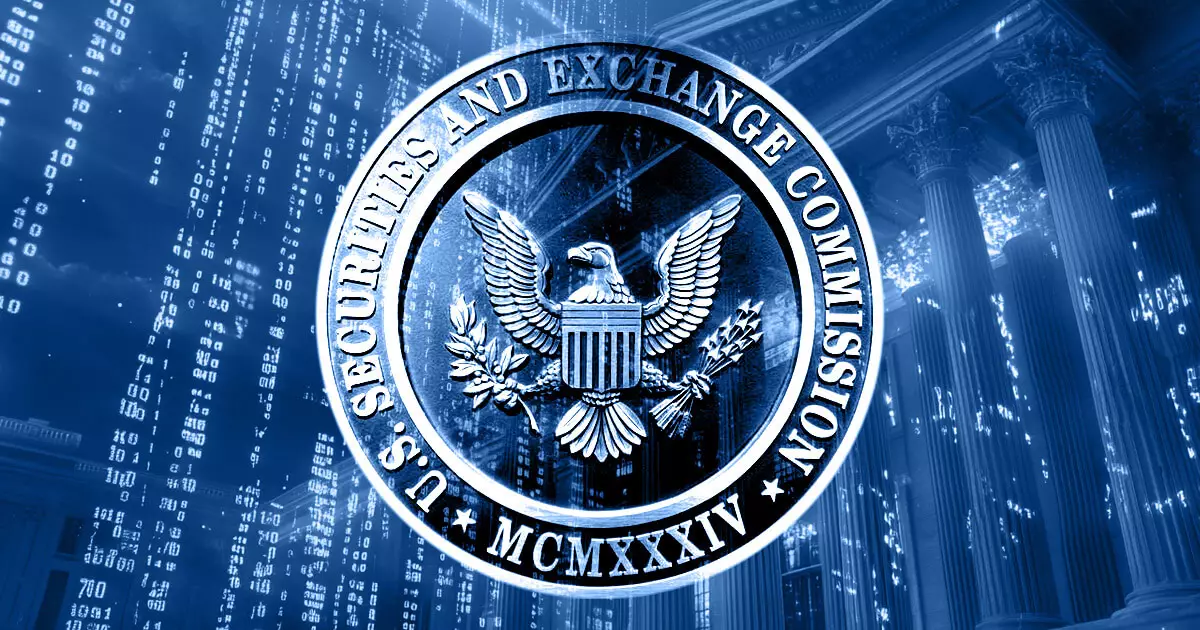The landscape of cryptocurrency investments is experiencing significant changes, as demonstrated by the U.S. Securities and Exchange Commission’s (SEC) engagement with two notable filings. The SEC has recently acknowledged Grayscale’s proposed spot Litecoin (LTC) exchange-traded fund (ETF) amendment and a request to enable in-kind redemptions for BlackRock’s iShares Bitcoin ETF (IBIT). Analysts view this interaction as a pivotal moment, potentially paving the way for regulatory approval amidst growing interest in crypto ETFs. This time is crucial for market participants eager to understand how such approvals could reshape the investment landscape.
The discussion surrounding the proposed spot Litecoin ETF is particularly instrumental, as it emphasizes the regulatory hurdles that digital assets face in achieving mainstream acceptance. Early remarks from Bloomberg’s senior ETF analyst, Eric Balchunas, underscore a sense of optimism surrounding the U.S. regulatory framework for cryptocurrencies. Balchunas has indicated that Litecoin seemingly fulfills all regulatory requirements, thus increasing the likelihood of the ETF’s approval. This sentiment is supported by evidence that the SEC categorizes Litecoin as a commodity, which simplifies the regulatory process compared to securities.
The anticipation builds as analysts speculate that the SEC may roll out approvals for multiple crypto ETFs simultaneously, should it green-light the Litecoin ETF. This potential surge in approval activity reflects a broader acknowledgment of the growing demand for alternative investment strategies in the crypto space.
Parallel to the discussions on Litecoin, the SEC’s attention to the in-kind redemption request for BlackRock’s iShares Bitcoin ETF is noteworthy. This proposal aims to alter redemption protocols by enabling investors to receive Bitcoin directly rather than cash equivalents. Such a shift could streamline operations for institutional investors, reducing potential tax implications associated with capital gains and operational inefficiencies that come with cash transactions.
This shift aligns with the broader trend in the ETF market that focuses on enhancing liquidity and operational efficiency. By allowing in-kind transfers, ETF structures become more appealing to larger investors who are increasingly evaluating how tax burdens and transaction slippage can impact their returns.
The SEC’s engagement not only signifies potential path forward for Litecoin and Bitcoin ETFs but also highlights a critical evolution in digital asset regulation overall. As the regulatory landscape begins to shift, industry stakeholders are paying close attention to how these initiatives will impact the long-term viability and operational framework of crypto investment vehicles. The approval of a spot Bitcoin ETF has already set a precedent, encouraging the introduction of additional crypto ETFs and creating momentum for altcoins like Litecoin to enter the market.
The SEC’s current actions reflect a growing consciousness regarding crypto asset management, laying the groundwork for future regulatory structures that may ultimately enhance investor confidence and participation in the digital asset space. As market participants closely monitor these developments, the outcomes could significantly influence the design and acceptance of cryptocurrency ETFs across the broader investment community.
















Leave a Reply